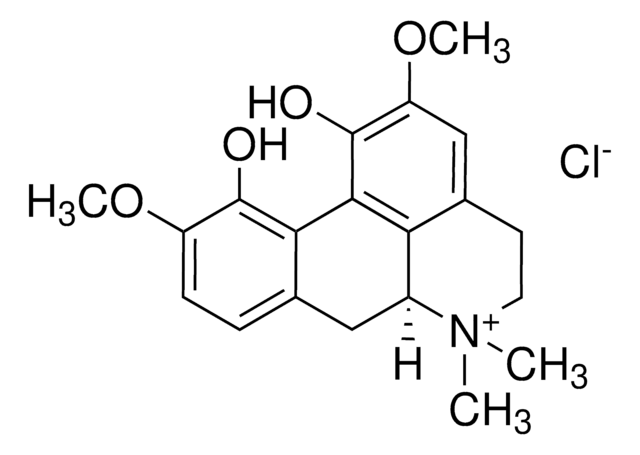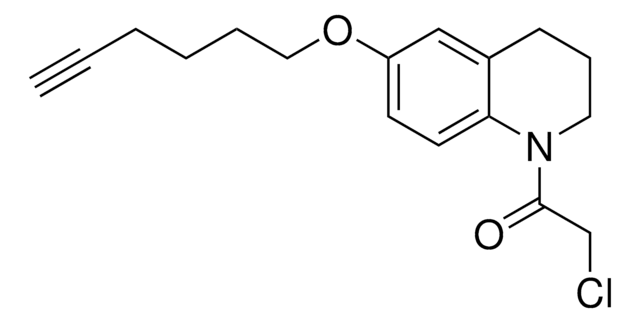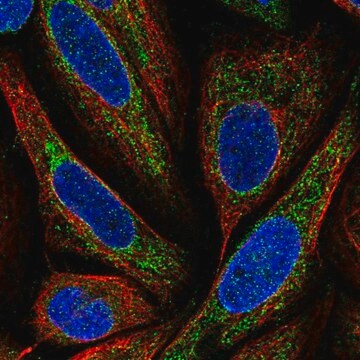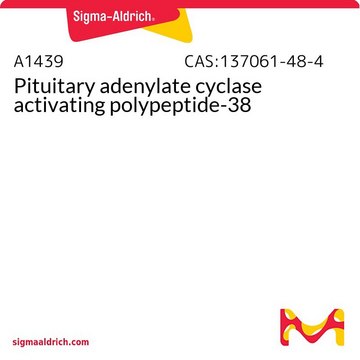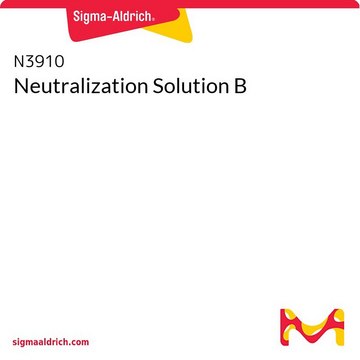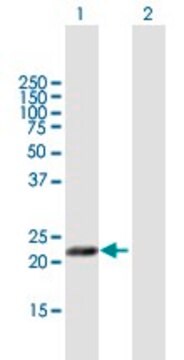PZ0362
CP-640186 hydrochloride
≥95% (HPLC)
Synonyme(s) :
(3R)-Anthracen-9-yl-[3-(morpholine-4-carbonyl)-[1,4′]bipiperidinyl-1′-yl]-methanone hydrochloride, CP 640186 hydrochloride, CP640186 hydrochloride, [(3R)-1′-(9-Anthracenylcarbonyl)[1,4′-bipiperidin]-3-yl]-4-morpholinyl-methanone hydrochloride
About This Item
Produits recommandés
Niveau de qualité
Pureté
≥95% (HPLC)
Forme
powder
Conditions de stockage
desiccated
Couleur
white to beige
Solubilité
H2O: 2 mg/mL, clear (warmed)
Température de stockage
room temp
Chaîne SMILES
O=C(C1=C2C=CC=CC2=CC3=CC=CC=C31)N(CC4)CCC4N5C[C@H](C(N6CCOCC6)=O)CCC5.[H]Cl
InChI
1S/C30H35N3O3.ClH/c34-29(32-16-18-36-19-17-32)24-8-5-13-33(21-24)25-11-14-31(15-12-25)30(35)28-26-9-3-1-6-22(26)20-23-7-2-4-10-27(23)28;/h1-4,6-7,9-10,20,24-25H,5,8,11-19,21H2;1H/t24-;/m1./s1
Clé InChI
DUBNXJIOBFRASV-GJFSDDNBSA-N
Application
Actions biochimiques/physiologiques
Code de la classe de stockage
11 - Combustible Solids
Classe de danger pour l'eau (WGK)
WGK 3
Certificats d'analyse (COA)
Recherchez un Certificats d'analyse (COA) en saisissant le numéro de lot du produit. Les numéros de lot figurent sur l'étiquette du produit après les mots "Lot" ou "Batch".
Déjà en possession de ce produit ?
Retrouvez la documentation relative aux produits que vous avez récemment achetés dans la Bibliothèque de documents.
Notre équipe de scientifiques dispose d'une expérience dans tous les secteurs de la recherche, notamment en sciences de la vie, science des matériaux, synthèse chimique, chromatographie, analyse et dans de nombreux autres domaines..
Contacter notre Service technique
